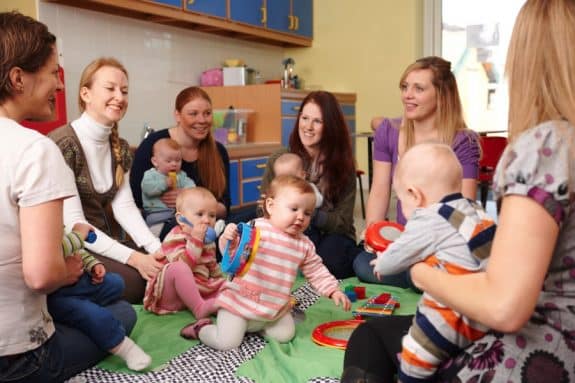Music makes people happy. In adults, it awakens their soul, motivates, reduces stress and anxiety. But for babies, music has been shown to improve their brain processing of both music and new speech sounds.
“Our study is the first in young babies to suggest that experiencing a rhythmic pattern in music can also improve the ability to detect and make predictions about rhythmic patterns in speech,” said lead author Christina Zhao, a postdoctoral researcher at the University of Washington’s Institute for Learning & Brain Sciences (I-LABS).
“This means that early, engaging musical experiences can have a more global effect on cognitive skills,” Zhao said.
The studies’ findings were published this week.
“Infants experience a complex world in which sounds, lights and sensations vary constantly,” said co-author Patricia Kuhl, co-director of I-LABS. “The baby’s job is to recognize the patterns of activity and predict what’s going to happen next. Pattern perception is an important cognitive skill, and improving that ability early may have long-lasting effects on learning.”
For their study, the research team looked to see if teaching babies a musical rhythm would help them with speech rhythms.
They observed 39 babies over the course of a month in during 12 15-minute play sessions with their parents. These babies were split into two different groups.
In the first group of 20 babies, a researcher led the babies and their parents through a beat tapping session while they listened to recordings of children’s music. The songs, All the songs were in triple meter — like in a waltz — which was chosen because of its difficulty for little ones to learn.
One of the sessions is shown below:
In the second group, the 19 babies attended play sessions that did not involve music. Instead, researchers had them played with toy cars, blocks and other objects that required coordinated movements.
“In both the music and control groups, we gave babies experiences that were social, required their active involvement and included body movements — these are all characteristics that we know help people learn,” Zhao said. “The key difference between the play groups was whether the babies were moving to learn a musical rhythm.”
One week after the play sessions ended, the families came back to the lab so the babies’ brain responses could be measured. The researchers used magnetoencephalography (MEG) to see the precise location and timing of brain activity.
The babies listened to a series of music and speech sounds, each played out in a rhythm that was occasionally disrupted, while sitting in a brain scanner. This was done to show how the babies’ brains would response if they detected a disruption.
While analysing their two brain regions, the auditory cortex and the prefrontal cortex – two areas that are important for cognitive skills – the team noticed that babies in the music group had stronger brain responses to the disruption in both music and speech rhythm in both the auditory and the prefrontal cortex, compared with babies in the control group.
This suggests that participation in the play sessions with music improved the infants’ ability to detect patterns in sounds.
“Schools across our nation are decreasing music experiences for our children, saying they are too expensive,” Kuhl said. “This research reminds us that the effects of engaging in music go beyond music itself. Music experience has the potential to boost broader cognitive skills that enhance children’s abilities to detect, expect and react quickly”







